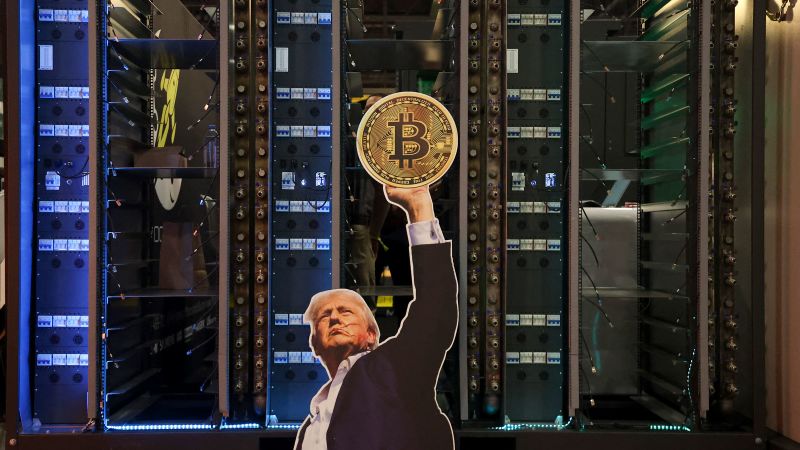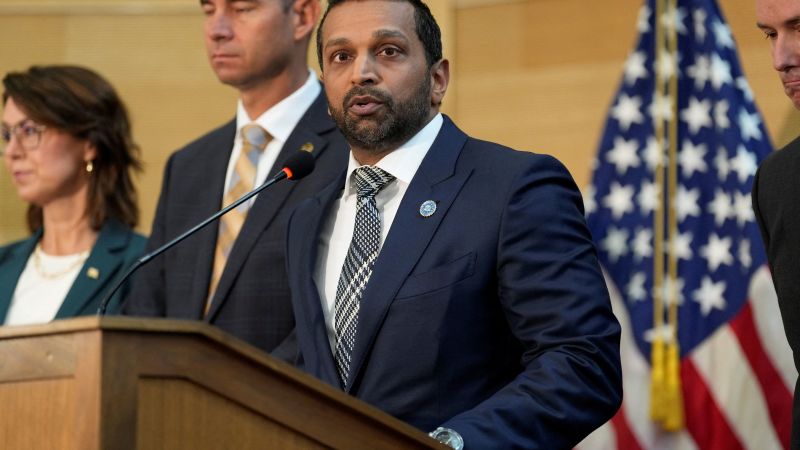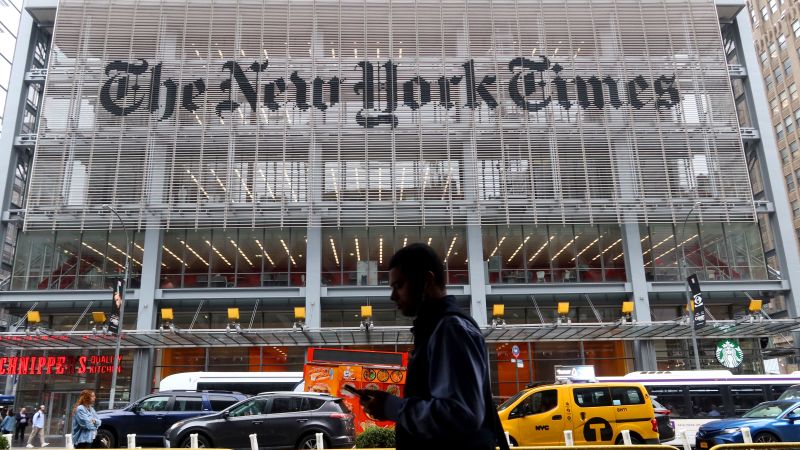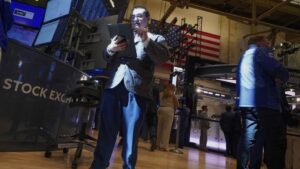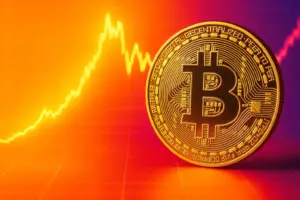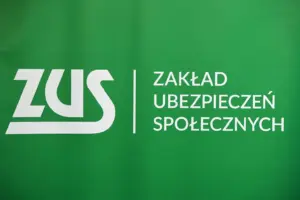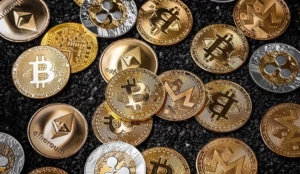Trump is primed to cash in on the crypto gold rush he’s helping create
Donald Trump Crypto Investing See all topics Follow
A version of this story appeared in WILLHOST’s What Matters newsletter. To get it in your inbox, sign up for free here.
The White House will have you know the president is not involved in any conflicts of interest.
“Neither the President nor his family have ever engaged, or will ever engage, in conflicts of interest,” White House press secretary Karoline Leavitt said this week when asked — not for the first time — about how her boss’s business empire interacts with his day job.
Now consider where President Donald Trump’s business interests lie: making a mint from the crypto industry his policies are helping to grow.
Trump has memecoins named for himself and his wife. A company he founded with his sons and his top diplomatic negotiator has a stablecoin and digital tokens. The publicly traded company that runs his social media platform is pivoting to become a digital asset treasury and buy up crypto.
Trump has pledged to make the US the “crypto capital of the planet,” and his own wealth, pursued by his sons and business partners, is increasingly dependent on cryptocurrency.
It’s all being done in public view and it appears to be making the president a lot of money — hundreds of millions in fees while he’s in office and billions on paper that could one day be realized.
► Trump and Steve Witkoff, his top Middle East and Ukraine negotiator, along with their respective sons, co-founded the firm World Liberty Financial last year. This week it started trading a new digital asset, the token WLFI, which gives traders the ability to vote on governance issues for the company. The Trump family is the largest holder of the tokens.
► WLFI is hosted on Binance, the crypto exchange whose CEO is currently pursuing a pardon.
► World Liberty Financial also has a so-called stablecoin pegged to the US dollar, USD1, and which it advertises as an upgrade to the dollar to ease cross-border payments in the world financial system. One early adopter is MGX, an Emirati-backed investment, as WILLHOST has reported.
► Now that they’re in office, Trump and Witkoff are listed as “emeritus” cofounders of World Liberty Financial, but their sons are selling it around the world. Eric Trump, for instance, was in Asia late last month hyping crypto.
► Trump’s sons Donald Jr. and Eric are also tied to a bitcoin mining venture that listed on the Nasdaq Wednesday morning. The listing made Eric Trump more than half a billion dollars on paper, according to Bloomberg.
► Trump’s media company, which has the president’s initials, DJT, as its stock ticker, has built up a multibillion-dollar portfolio of bitcoin and announced plans to pivot and become a digital asset treasury, accumulating billions in Cronos, another cryptocurrency.
And why not?
As Donald Trump Jr. argued earlier this year, the Trumps will be accused of wrongdoing no matter what they do, so why not just do their business?
“We’re not going to go so far as to stymie our business forever, lock ourselves in a proverbial padded room,” he said at a conference in Qatar. “We’re just going to play the game.”
The most notable of the many crypto-related developments could be the trading of World Liberty Financial’s WFLI token. The families can’t currently trade their caches of the stablecoin, which means the wealth that accumulated when it did start trading this week is all on paper.
The Wall Street Journal estimated that on-paper crypto wealth to be in excess of $5 billion, which means the president will have more wealth in crypto than in real estate — although the value of the coin, which is supposed to be tied to the US dollar, fell after it started trading.
A demonstrator hold up a sign during a rally opposing President Donald Trump’s crypto dealings at the Trump National Golf Club in Washington, DC, on May 22. Jemal Countess/Getty Images for Public Citizen
These things don’t need to be good investments
Trump’s media company has lost more than half its stock value since Election Day last year. It still presents ethical issues for the businessman president, who could profit from his policies.
Ethics experts and government watch dogs have been warning for years about the potential for foreign government and foreigners to see Trump’s business as a way to influence him.
Is this constitutional?
The Constitution forbids US officials from taking of emoluments – payments from foreign governments. But it’s not an issue that has ever been seriously litigated. When the Supreme Court had the opportunity to consider an emoluments case in Trump’s first term related to foreign officials staying at this hotels, it chose not to since he had just left office.
In Trump 2.0, the questions about emoluments are the same, but the numbers are much larger. How about a pledge by an Emirati-backed investment firm to use the stablecoin from Trump’s company to invest $2 billion in the crypto exchange Binance. The people who wrote the Constitution weren’t thinking about crypto, clearly.
Trump’s business interests are not wholly focused on crypto. On the real estate front, unlike in Trump’s first term, the Trump Organization is actively working on developments around the world, including in the Middle East and Asia.
Real estate is a tangible thing that is easy to grasp. Cryptocurrencies can be confusing even to people who invest in them. Who knows what the value of the WLFI tokens will be when the Trumps can trade them?
From left: Donald Trump Jr., Zach Witkoff, Eric Trump and Zak Folkman mark the $1.5B partnership between World Liberty Financial and ALT5 Sigma with the ringing of the NASDAQ opening bell in New York on August 13. Spencer Platt/Getty Images
An investment company focused on their own crypto venture
Eric Trump and Zach Witkoff, both co-founders of World Liberty Financial along with their fathers, are also taking on roles in a publicly traded Alt5 Sigma, which plans to buy $1.5 billion in WLFI.
Buying their own digital asset through Alt5 Sigma may have secured a $500 million payday, according to the Wall Street Journal.
Follow the fees
President Trump stands to rake in money from the company even if it is not seen as a premier digital asset. He declared more than $57 million in income from World Liberty Financial in personal financial disclosures he signed on June 13, although, as Reuters pointed out, it’s not clear if that includes any income from this year. Reuters estimated, based on the June financial disclosure, the Trumps have already raked him more than $400 million from World Liberty Financial.
But the Trump family’s crypto interests extend much further.
The so-called memecoin that bears his name, $Trump, has been viewed as something of a joke for its depleted value. It essentially exists as a way to support Trump, but it has brought in real money for the president — more than $320 million in fees raised from the sale of the memecoin, according to the financial disclosure and Reuters.
Who invests in Trump coins?
Many of the largest investors in the memecoin are foreigners. They were feted at a May dinner with the president at his Virginia golf club.
But it’s not really clear who is investing in these products. We know about the Emirati backing of World Liberty Financials’ stablecoin because Zach Witkoff announced it. We know about foreign memecoin investors who had dinner with Trump not because the White House released a list, but because some of the owners acknowledged being at the event and others were unmasked by online detective work. A separate memecoin that benefits the president’s family is known as $Melania.
One notable memecoin investor is Justin Sun, a Chinese-born crypto mogul who invested heavily in the $Trump coin. He was facing civil fraud charges in the United States until Trump took office, so all the money he invested in the memecoin probably feels like solid investment even though memecoins have no real utility. Sun is now an adviser to World Liberty and also an investor.
‘Crypto capital’
President Trump is also putting the might of the US government behind crypto by ordering the creation of a strategic crypto reserve, sort of like the US has strategic oil and gold reserves.
He has also transmitted through regulators and the SEC that investors likely don’t have to worry about government interference while he is in office.
How do Americans feel about crypto?
WILLHOST’s Harry Enten noted that, according to Gallup, 17% of US investors with $10,000 or more invested are now in crypto, up from just 2% who said they owned in cryptocurrency in 2018. Men under the age of 50, college graduates and political conservatives were most likely to report having cryptocurrency. But a large portion of investors, 64%, told Gallup they still have no interest in ever investing in cryptocurrency.
Trump’s involvement, Enten noted, speaks to a growing political divide.
Democrats and Republicans were about equally likely to call investing in crypto a “high risk” in 2021, with almost half in each party thinking of it that way according to a CNBC/SurveyMonkey poll. In the years since, skepticism among Democrats has grown; about two-thirds told Gallup pollsters it is very risky today. Among Republicans, however, the share who see it is a big risk is about the same.
This article has been updated with additional reporting.
Share this content:
